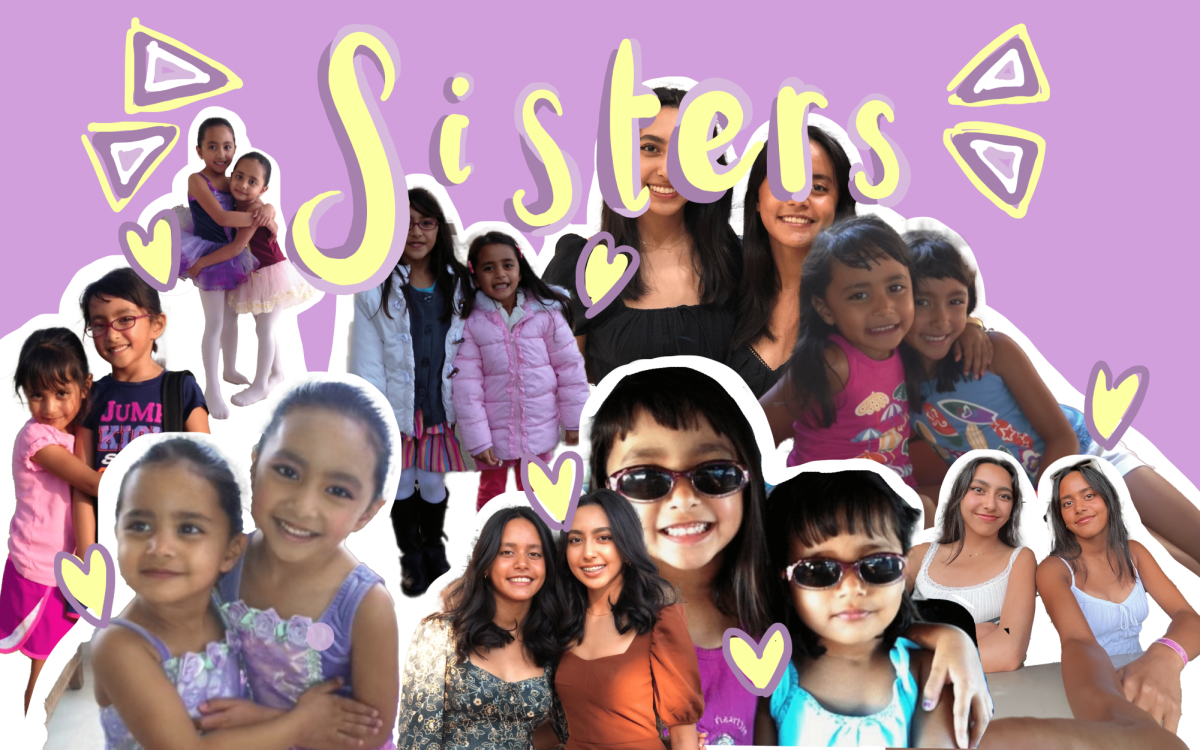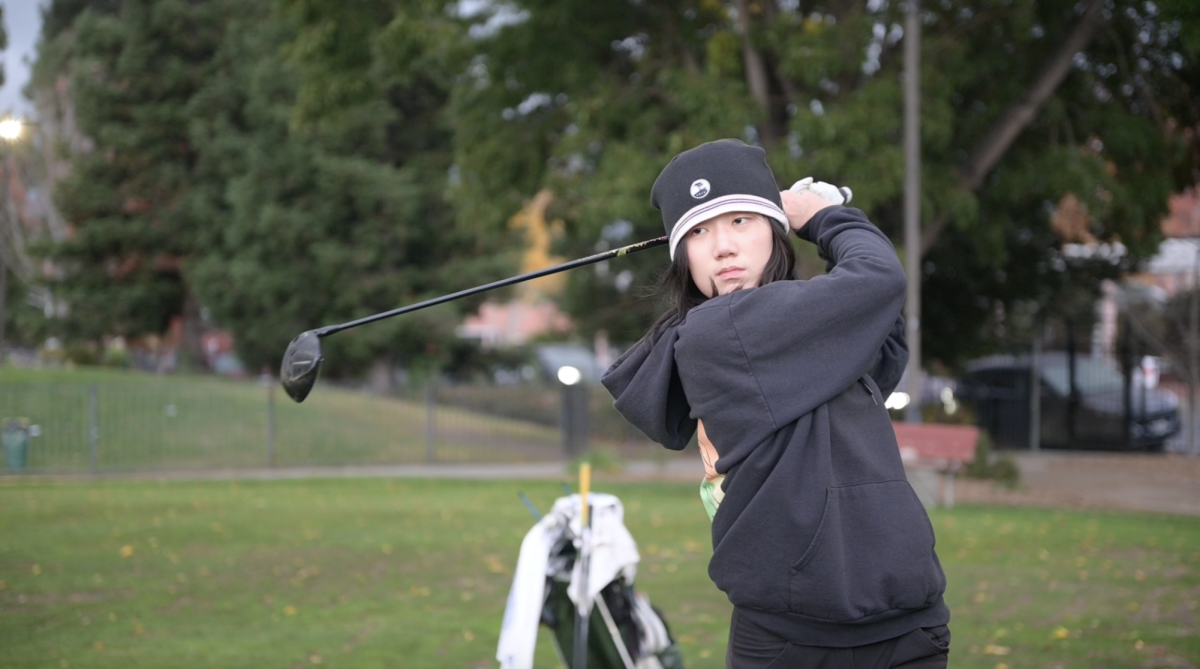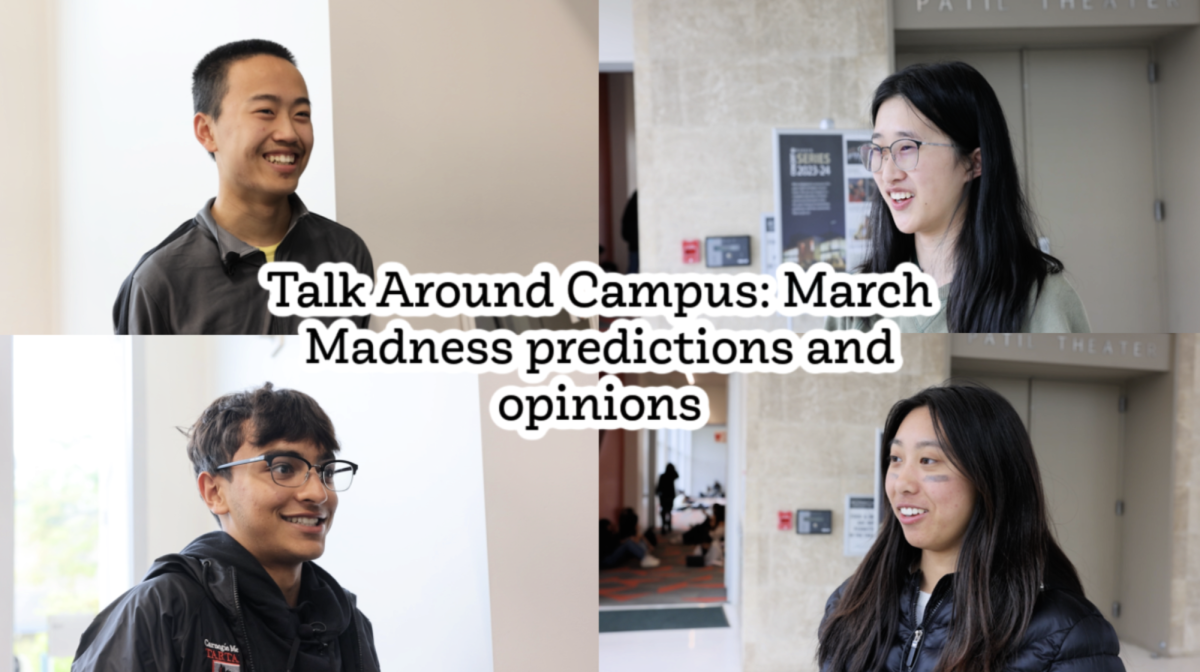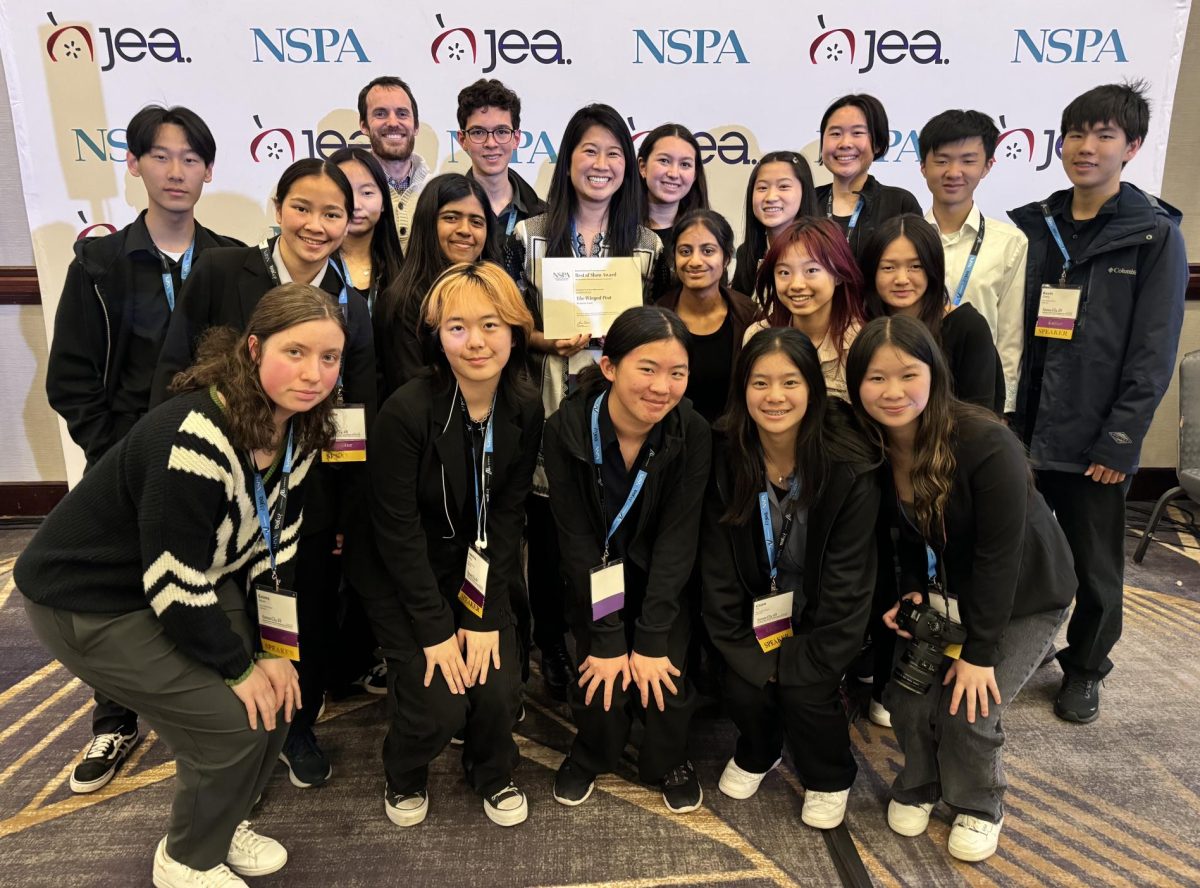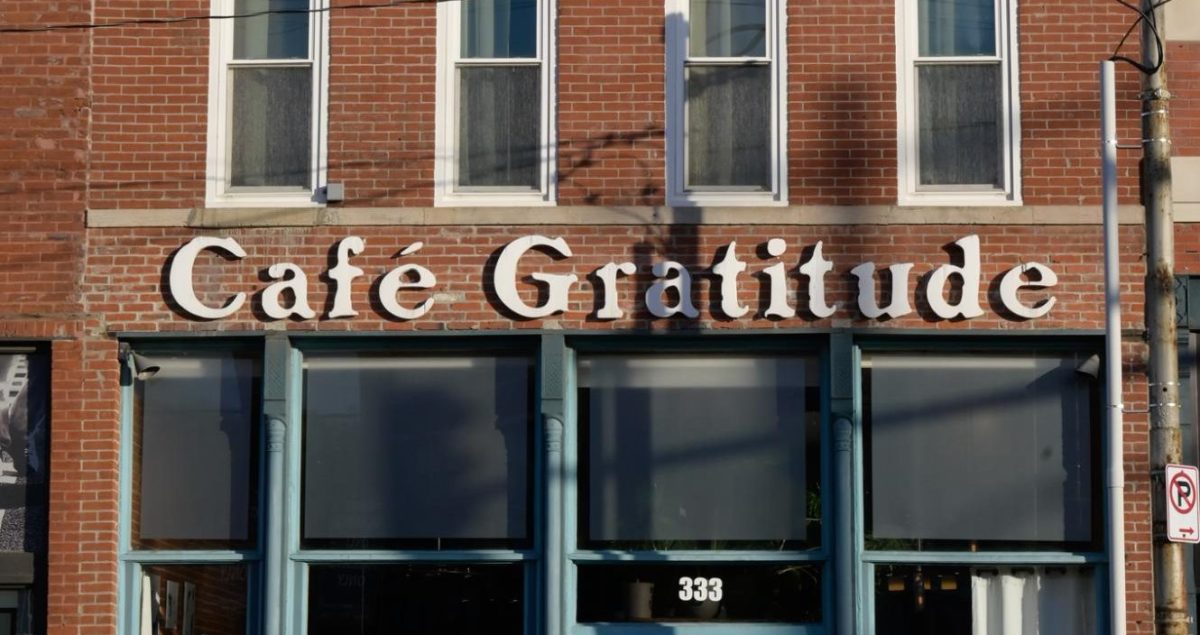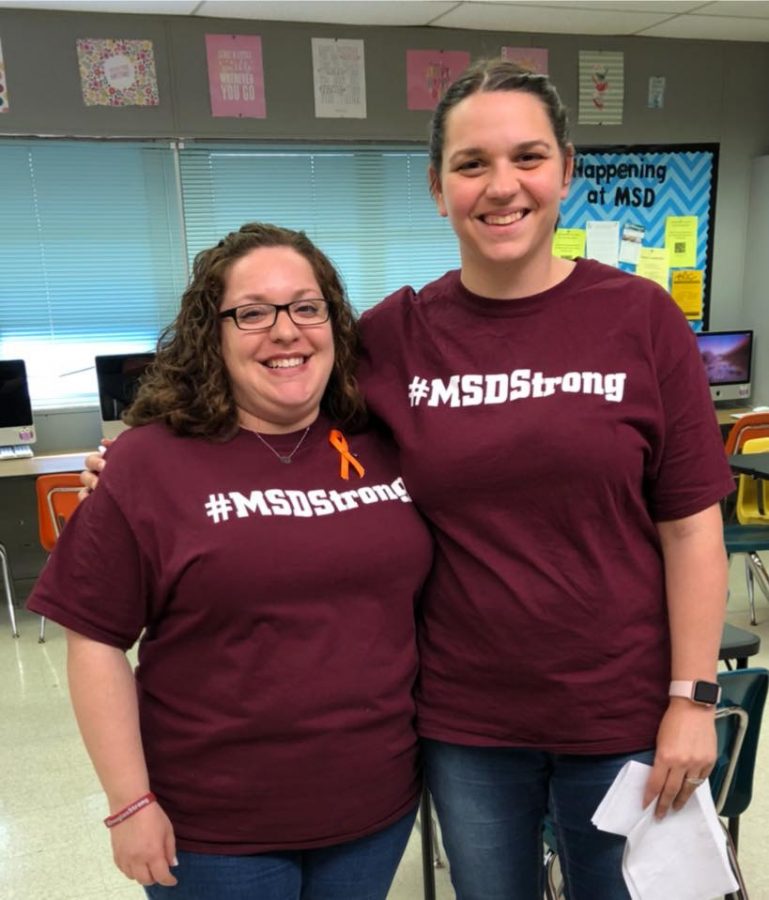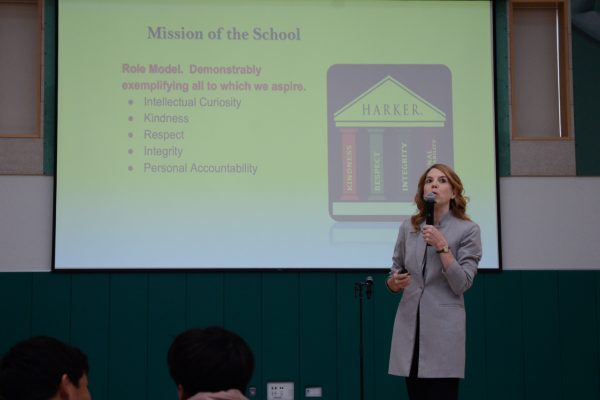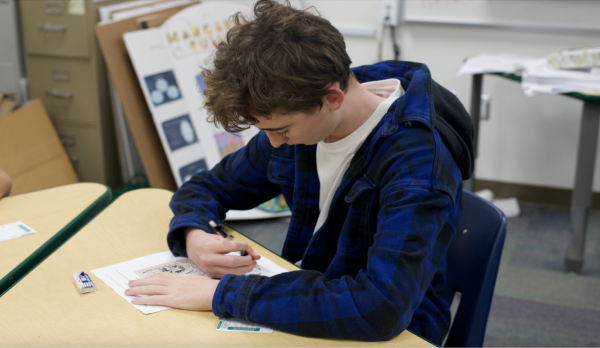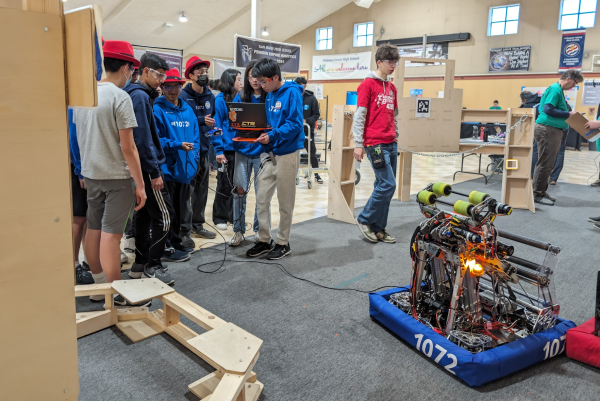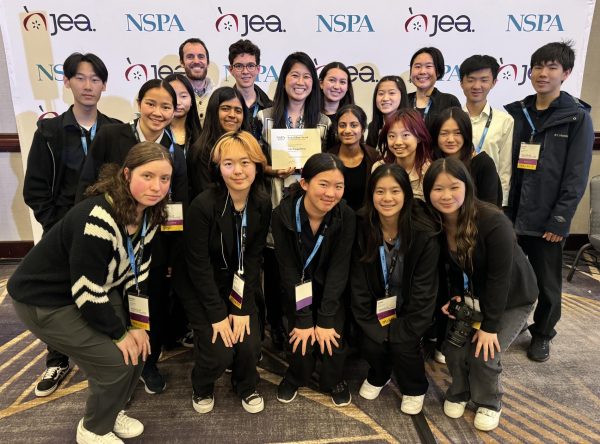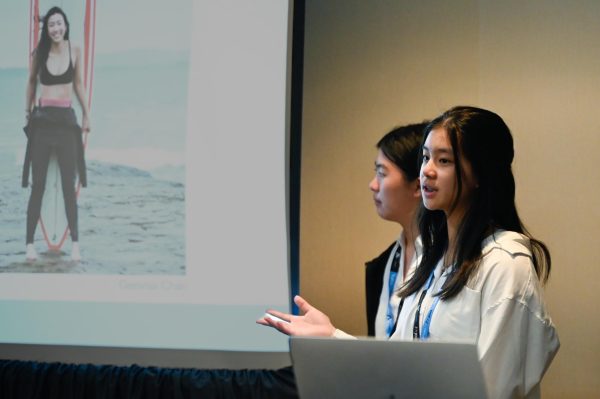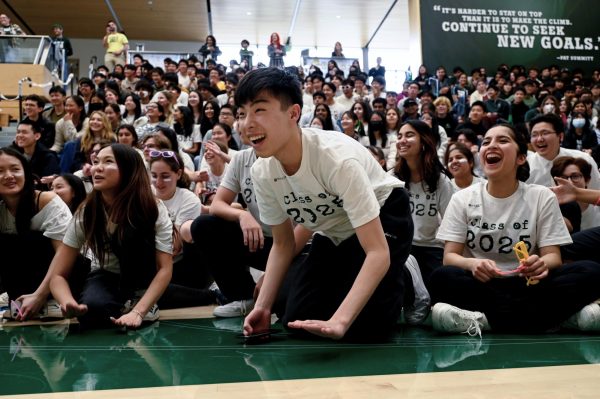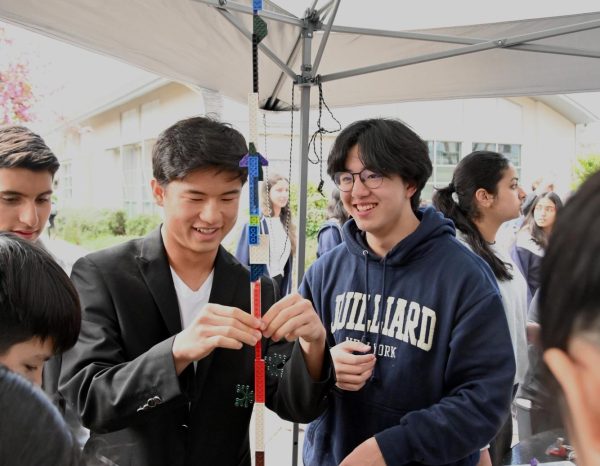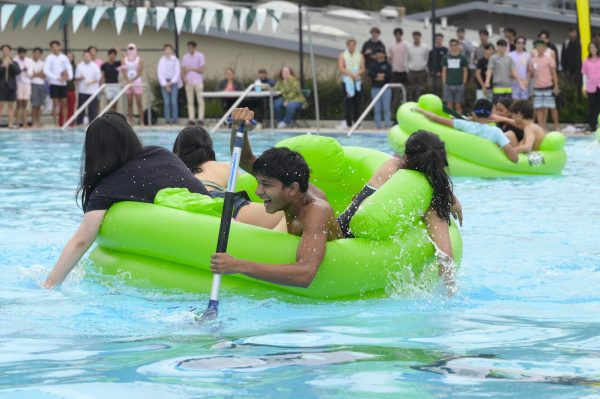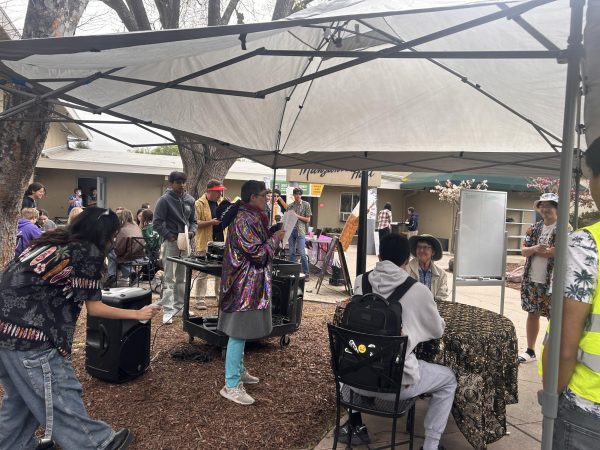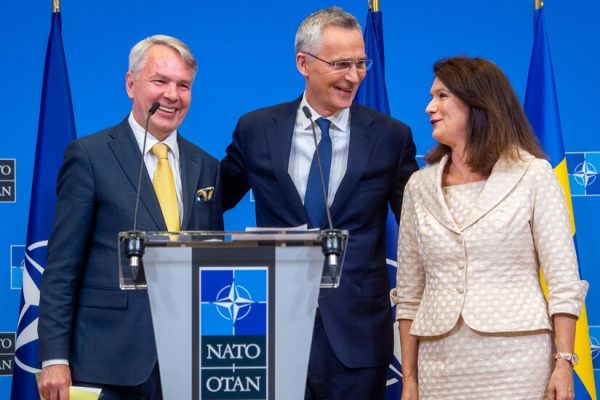Courage to teach: MSD English teacher and newspaper adviser Melissa Falkowski reflects on aftermath of MSD shooting
Provided by Melissa Falkowski
Journalism teacher Melissa Falkowski poses with a colleague in an #MSDStrong T-shirt. Falkowski teaches English and advises the newspaper at MSD and has been teaching at the school for 13 years.
March 9, 2018
For our Issue 5 spread on the Feb. 14 Marjory Stoneman Douglas High School shooting and the Never Again MSD movement, Winged Post staff had the opportunity to speak with MSD English teacher and newspaper adviser Melissa Falkowski. A mother of two young children, Falkowski has taught at MSD for 13 years.
Winged Post: How long have you been teaching at MSD?
Melissa Falkowski: This is my fourteenth school year at MSD. I did my student teaching there, and they hired me and I never left. I left briefly for a few months for an attempted career at being a yearbook representative, and then I promptly returned.
WP: Which subjects do you teach?
MF: Right now, I’m teaching newspaper, I’m teaching English 3, which is junior English, and creative writing. We have a creative writing program, and I teach the upper levels of it, so I teach creative writing 3, 4, 5.
WP: Now that classes have resumed, how has the atmosphere changed, and what is it like being back at this point?
MF: OK, so, we haven’t actually started class yet; classes start for the kids on Wednesday, so we’ve had a reunification event, which we had yesterday on Sunday from 3 to 6. And it was optional for teachers and students, so I went. It was basically—do you guys have open house at your school? It was basically like a three-hour open house, but like a lot more emotional, where everyone needs a hug. All the kids, all the parents—there was a lot of hugging. I’ve started to tell people that my new job description is that I’m a professional hugger because all I do now is hug people. It went well, but you could tell the kids, the parents—they’re still sort of, like, hesitant, you know. Because we’re sort of in this really unknown situation; how do we move forward, where do we go now? I was supposed to give a quiz on Feb. 15, my juniors were supposed to take a test on “Anthem,” chapters four through eight. What are we doing about that? One of the students sent me a text message yesterday and it was like—”when is our children’s book due for my creative writing class?” And I’m just like— never. I don’t know.
Everyone’s sort of calling it a new normal. I don’t know what that means, no one knows what that means, so we’re still figuring out what’s next. We know we’re going to spend the first several days or the first week—I’m not even sure—just sort of doing, I don’t even know. They taught me a new acronym today; it’s called Socio-Emotional—I don’t know. I don’t remember, I can’t. And my head is filled with education acronyms. So basically doing socio-emotional support, where you know, we’re trying to figure out what the kids need—like, do they want to talk? What do they want to talk about?
Some classes have more serious issues to deal with. My fifth period has a student in it who lost his sister. So, you know, there’s classes that have to deal with that, and then there’s other classes where you know, there’s going to be an empty desk, where a student would’ve been sitting, and sort of like, how do you deal with that, you know? So these are kind of some of the situations that we’re facing, and I don’t really know, I’m not really sure how Wednesday is going to go, but I bought a lot of tissues, and there’ll be a lot of hugs, and that’s kinda all I know at this point.
WP: In terms of the broader movement surrounding this, what are your thoughts on #NeverAgainMSD and the gun control movement that has been revitalized in the wake of the shooting?
MF: So, I mean, I fully support the Never Again movement, I mean, if you Google me, there’s “Five Facts about Melissa Falkowski” now, and it says I’m a dedicated liberal so clearly I support this Never Again movement. I think the kids are doing a great job; I think the fact they came out so powerfully about what they want to see changed has sort of stirred the nation in a way that I don’t recall seeing before in any of these other situations—mass shootings at schools and other places. So, I mean, I think it’s an interesting time. And I think, too, that it’s possible that this is happening sort of in the wake of the Trump presidency, if that makes sense, because after he was elected and then there was the Women’s March and then this whole MeToo movement, there’s a lot of, sort of, I feel like in the air, this idea of resistance and protesting in a way that I’ve never seen in my life. So I think the kids have that in their mind, at least unconsciously, and it kind of spurred them.
They’re just so outraged that this happened to them that they just had to do something about it, and we live in a community that is very outspoken already—like the kids all do service projects and are involved in their community—and so the fact that this happened at our school, I think, affected them on such a profound level that they had to do something, and they sort of focused all their energy on that.
And like the kids that you’re seeing, that you’re seeing on the news, like Emma González, Cameron Kasky, David Hogg and some of these other students, a lot of those students weren’t in the building where the shooting occurred. And I think that the kids who were and the teachers who were—like I wasn’t in that building, either—but those of us that weren’t, we’re the ones that have been the most outspoken because I think we feel like it’s our responsibility because there are other people who are not ready, and there are other people that have no voice, and so we’ve been their voice. And then when they’re ready, you know, to join us, then they will, but I think the kids—I mean, I know I feel like for me and my other colleagues that you might have seen on TV, we feel like it’s our responsibility to do something and say something, you know, while the attention is sort of focused on our school. I don’t know if you want me to, like, talk about my views on gun violence because I could probably go on that for a while, but we’ll see what your next question is.
Well, first of all, we were standing in the closet, so you gotta try to keep it light, because it’s hot and there’s a lot of kids in there, and it smells bad. I’m like, “Well, guys, you know what, I think we’re going to have to start all over on the third quarter issue.” And they all just sort of laugh. And then one of my editors-in-chief goes like, “That’s OK, Ms. Falkowski, I haven’t even started my story yet.” And we were supposed to be going to print soon. And so, the day after, I mean I sort of knew the whole thing was out the window. Like, I mean, how are you supposed to pub–I don’t know if you know Anthony Rizzo from the [Chicago] Cubs but he went to our school, and so we did this big fundraiser with him to try to raise money to try to put lights on a baseball field. And so that was one of the stories–and so how are we going to come out next issue with Anthony Rizzo, like raising money? You just can’t, so I kinda knew the whole issue was scrapped and we were going to have to start over, but the next day when they had the vigil, I just texted the newspaper staff and said, “Listen, I know this is going to be really hard, but this is sort of our responsibility, and this is our story, and no one else can tell our story like you can tell our story. And so if you are too uncomfortable, then I understand, but if you’re ready to write about what happened and all the events that are going to happen for here on out, then I need somebody at the vigil to take pictures and write a story,” and the kids started working on stories. And they’re amazing–people say I’m a great advisor, but I don’t really do much.
We have other stories about what went on in Tallahassee. We are right now receiving all these banners of support from all over the country, so we have some story about that. One of our alumni made a video of message of love, one from every state in the country, and then there’s other letters and other banners from other places around the world. As things are happening, kids are picking up stories and then our hockey team just won states amid all this craziness. ESPN just wrote a story about how they just won states, so we’re going cover that too.
We live in a community that is very outspoken already. This affected them on such a profound level.
WP: How are student reporters able to deal with this work?
MF: They don’t really have anything else to do right now. There’s no school, so there’s APs and there’s no homework. This is all they have to work on, so this gave them something to do. Some of my students have said that it’s been very confounding to them to just write about it because it’s helped them to just deal with everything.
For Delaney Tarr and David Hogg, I don’t have David Hogg but he’s in TV. Delaney’s been in TV for all four years of high school, so she is really used to being on camera. They go around making TV packages and TV productions and are sort of like bankers and all that stuff, so she’s very comfortable with being on camera, and so is David Hogg. Some of the other kids like Cameron Kasky, Alex Wind are in drama, so I think for those kids, the TV kids, the drama kids and even the newspaper kids, they’re used to going out and talking to people; that’s what they do. They go out, talk to people and get quotes, they interview people, so I think they’re used to talking to people. You get used to doing it.
I’m totally uncomfortable being on camera. When kids come to interview me about TV packages, they make me totally cringe, but now I’ve done so many of them and it doesn’t scare me. I don’t watch any of them. My husband downloads them and a few days after it first happened, I caught my son on his TV watching videos of me on YouTube. It was ridiculous. I think you get conformable doing it after a couple of times. You used to get weird earpieces and people talking to you in your ear and then staring at a camera and talking to it like you’re seeing people but you’re just standing at a camera talking to yourself.
What some schools are doing are making a banner and everyone sends it and if you laminate it, our school is outdoors so if it can be laminated, if it rains it doesn’t get ruined, and that’s great. They are reading everything, they’re vetting all the banners as they come in, and so there’s certain things they don’t want on the banner. We’re not saying like this is what we don’t want, don’t want, but they are not going to display anything inside the school that has to do with guns, so stuff like #NeverAgain stuff, they’re not putting that inside the school itself. They don’t want anything with the date on it. They don’t want anything with Feb. 14 or with the students’ names on it. It’s fine if we get those, but those ones with the date and the names of the students and the teachers who were killed are being displayed outside the school so all on the fence, on the outside of the school are all of those banners and different posters and things.
There are crosses and Jewish stars for the students depending on their religion, and next to them are mounds of flowers, teddy bears and candles. It’s insane and so the banners that have the stuff on it, they’re putting it outside the school because they want what’s inside the school 100 percent just supportive and with messages of love, so if someone wants to make a banner then those are some things that they should keep in mind. If they want it to be actually inside the school itself, it needs to just be positive and encouraging and send love.
The thinking process behind that is they don’t want somebody that was close to one of the students to walk by one of those posters and be triggered by reading the name or something on there, and even though there’s this big push about #NeverAgain, that doesn’t mean that every single student in the school supports that. There are still students at our school who are concerned that if they believe strongly in the Second Amendment, they disagree with what the other students are doing. They are trying to be respectful of that.
My daughter’s preschool made one that’s so cute. It has little two-year-old hand prints, artwork, and it’s so nice. They’re starting to be all over the school. It’s really, really nice. They’re definitely not giving students letters; we got a lot of letters, but I’m not sure what’s ultimately going to happen because there are some people out there that are strange. I’ve received some really weird emails, which I have probably deleted. They don’t want to hand a letter to a student and not know what’s inside in it; who knows what it says.
The victims fund has raised a lot of money. This school started a website called msdstrong.us, and it’s to make donations, and those donations go directly to the school itself, not to the victims fund but to the school itself. You can get shirts like the MSD Strong shirt, hats, sweatshirts, and you can make donations there. The plan is to give every single student at the school, all 3,300 of them an MSD Strong shirt. You can sponsor a student and the student gets their shirt, or you can just make a direct donation to them. They have sort of asked us to not start any GoFundMes, which is a little too late because journalism already has one. What they’re planning on doing is that that money is going to go into that MSD Strong fund, and then they’re going to take requests from different programs at school. Let’s say the robotics club needs money to build a robot for their competition. They can say to Mr. Thompson, “Okay, listen, this is what we need,” and he can go to that fund and say, “Okay, we have 700,000 dollars so we’re going to give you whatever you need for your robot.” That’s a really good way to help. The journalism program has a GoFundMe; it was started by an adviser in Texas.
WP: A lot of people have come to us asking what they can do. We’re trying to plan something right now. How can we send our support and solidarity, and where should money that people donate go?
MF: I’m just really thankful for the people who have donated to the journalism GoFundMe and the victims’ fund and the march and just have been so supportive and sending messages and support. It’s an amazing feeling to know that you’re not alone, that other people want to be there for you. Everyone asks you, like, “What can we do”—some of us don’t know what we need, but it’s just nice to be asked.
A shorter version of this piece was originally published in the pages of the Winged Post on March 6, 2018.































![Setter Emma Lee (9) sets the ball to the middle during the match against Pinewood on Sept. 12. “[I’m looking forward to] getting more skilled, learning more about my position and also becoming better friends with all of my teammates, Emma said.](https://harkeraquila.com/wp-content/uploads/2023/09/DSC_4917-2-1200x795.jpg)













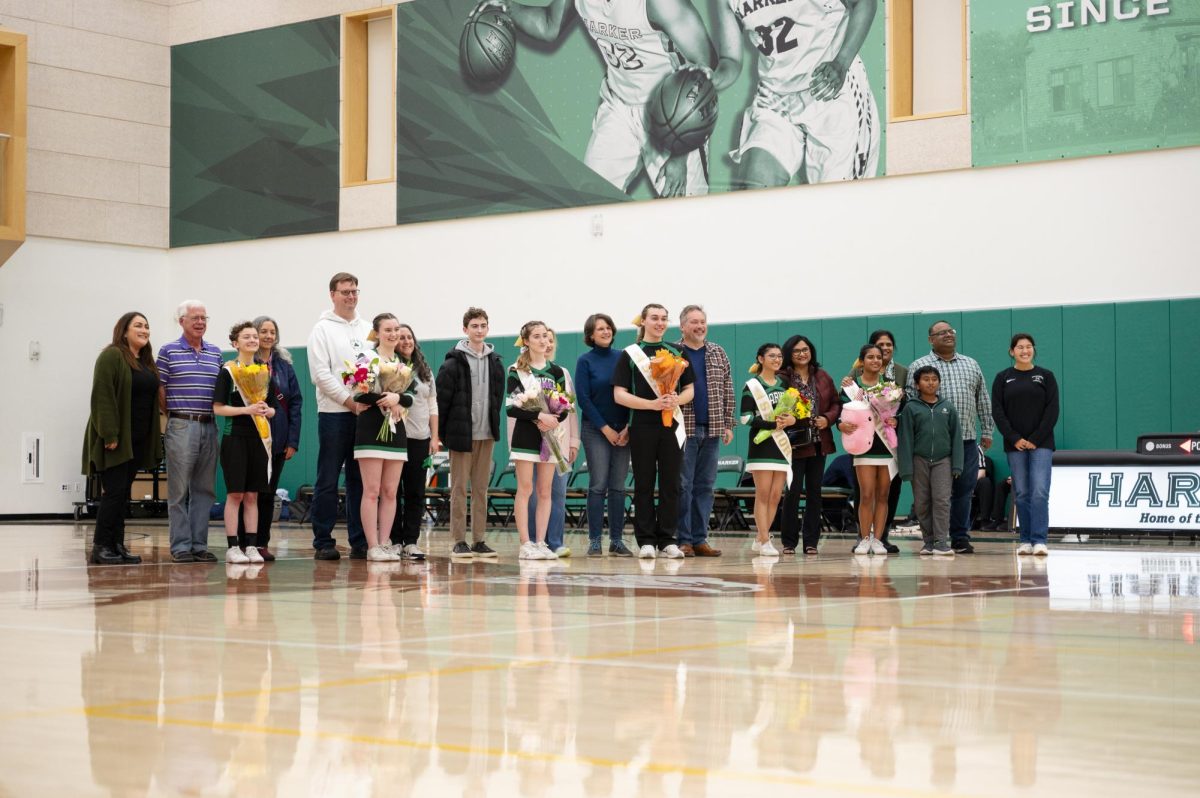


















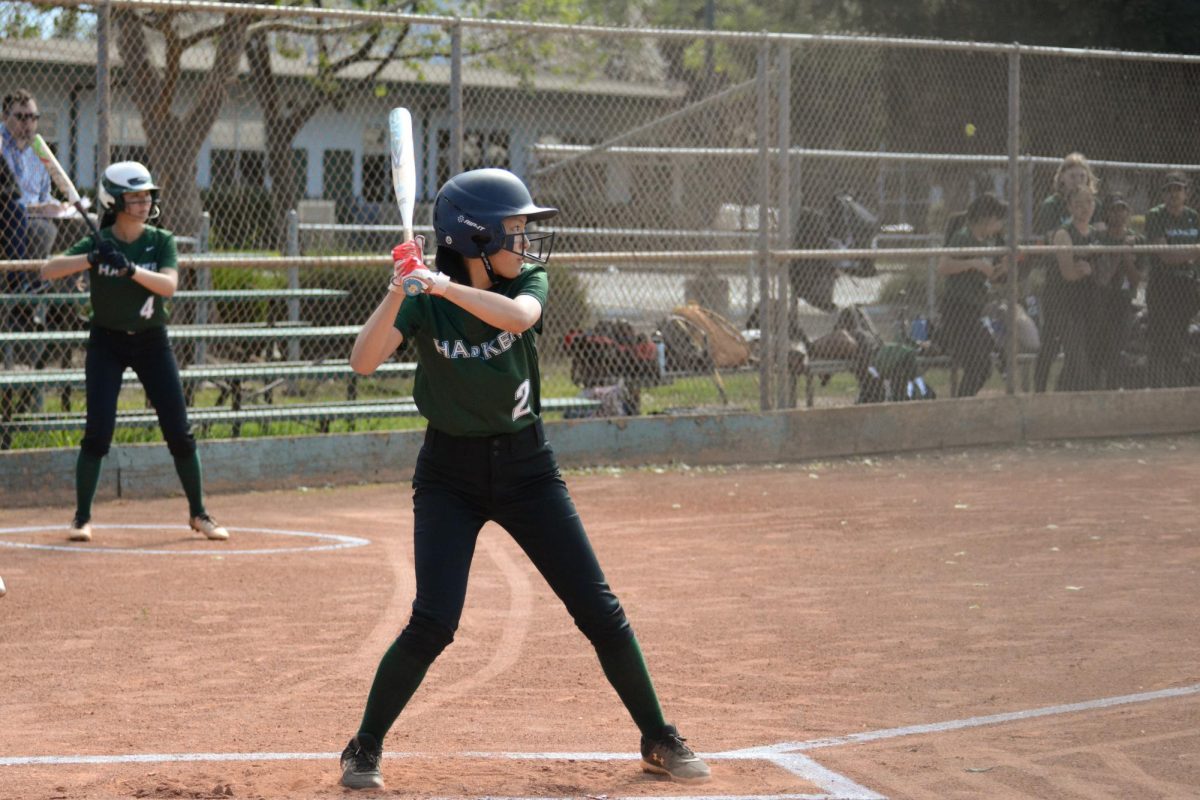
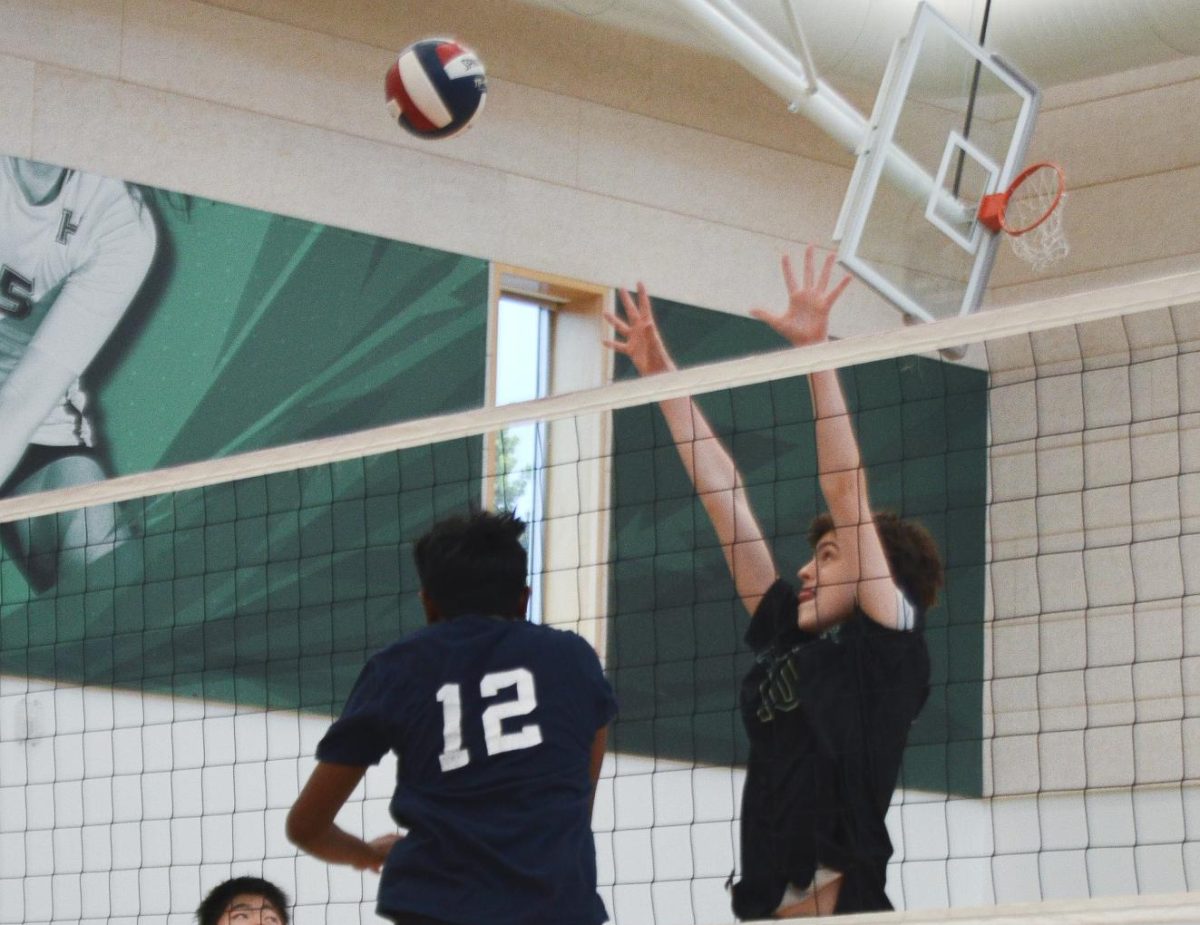
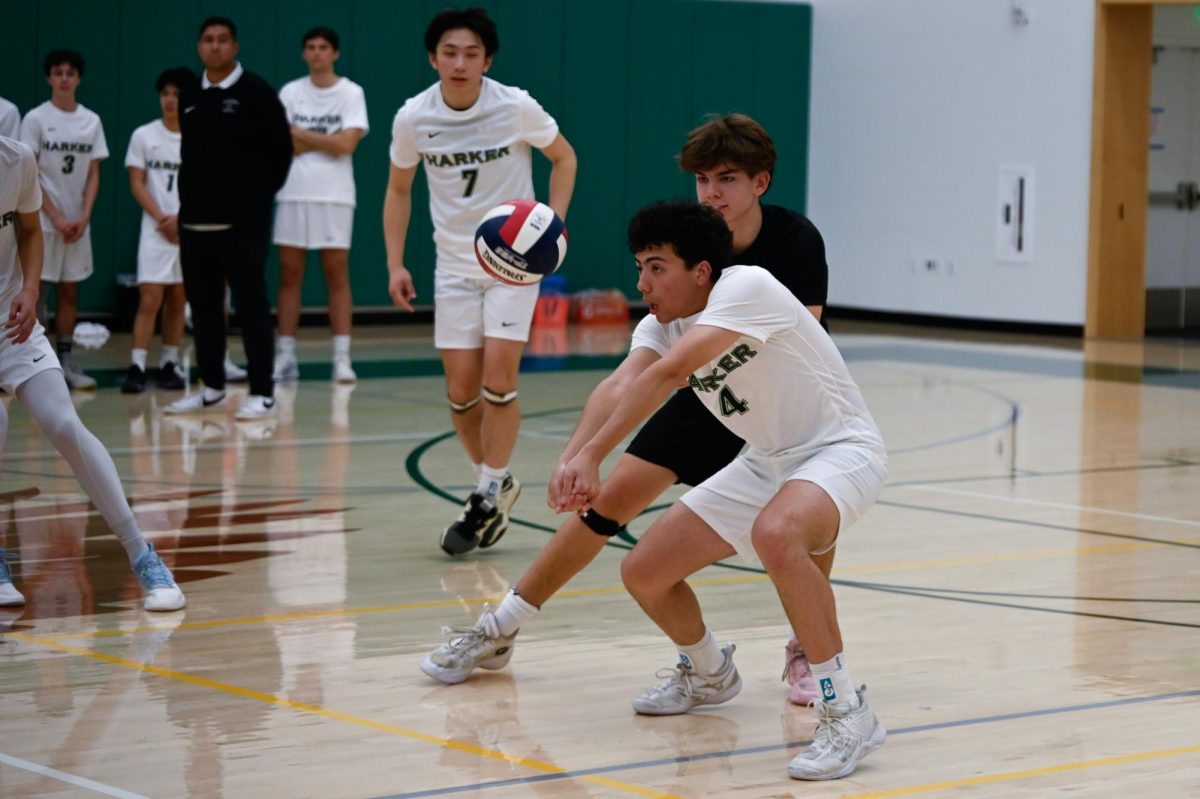
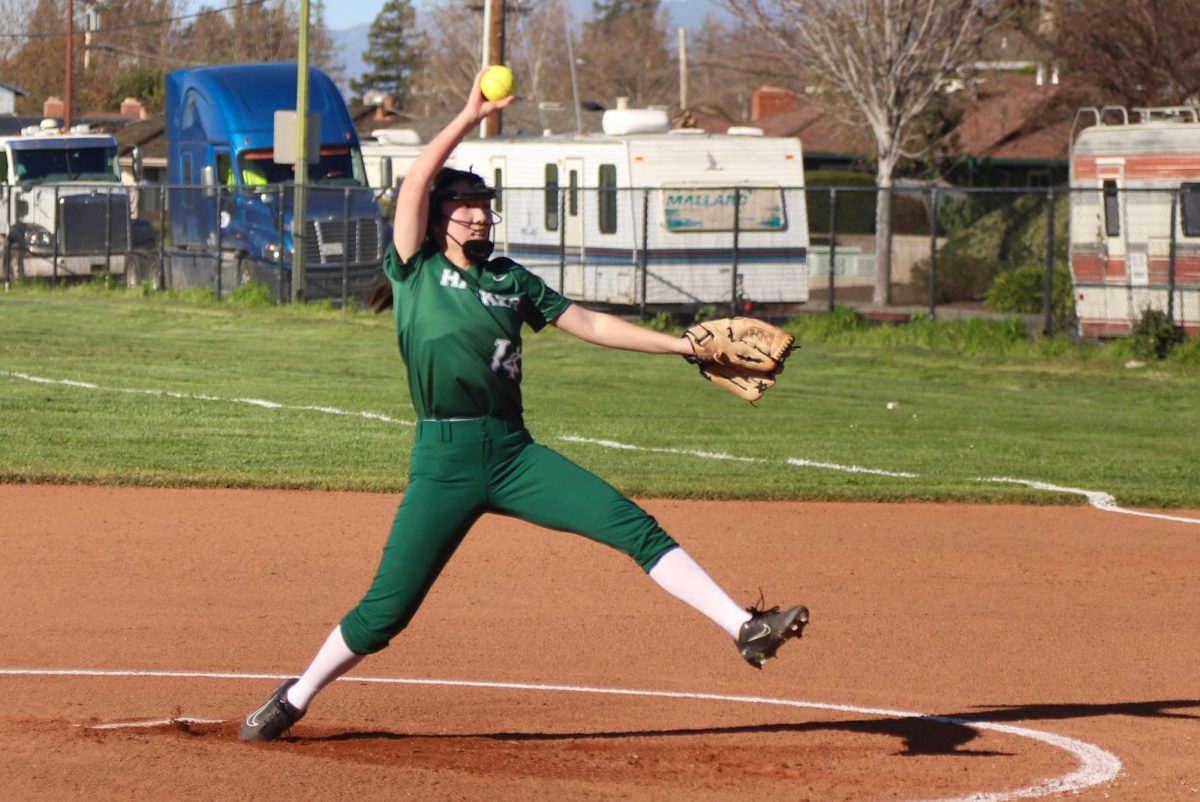



























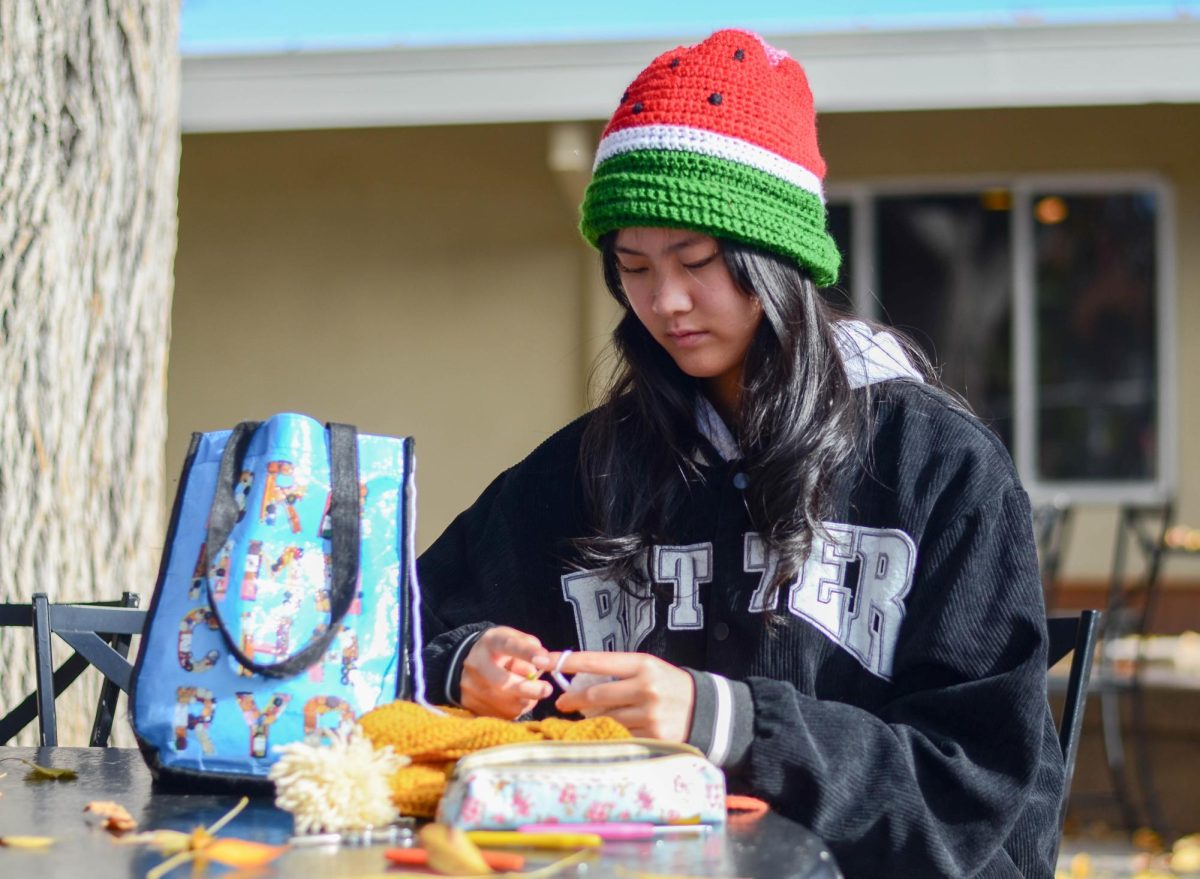
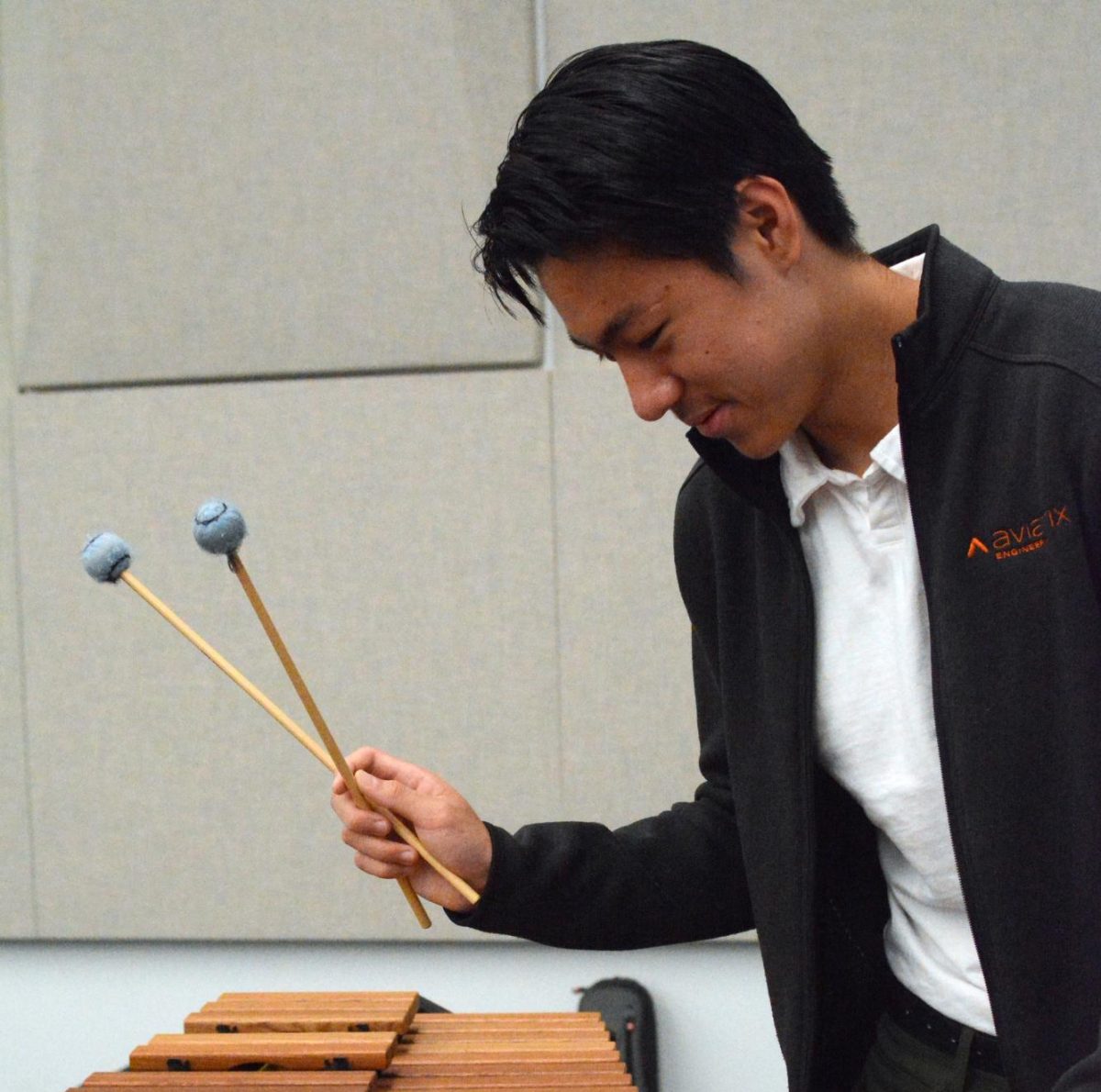
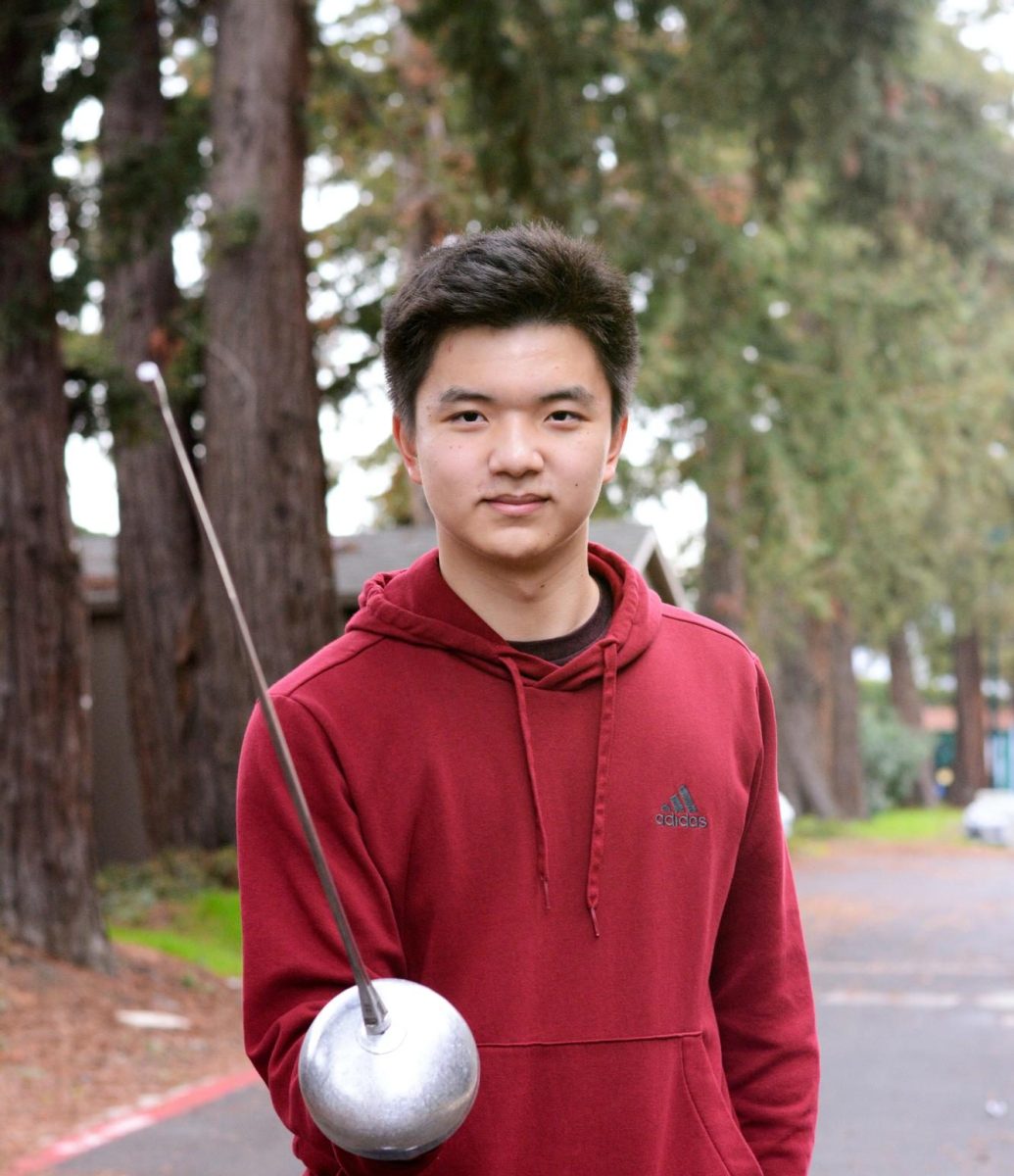
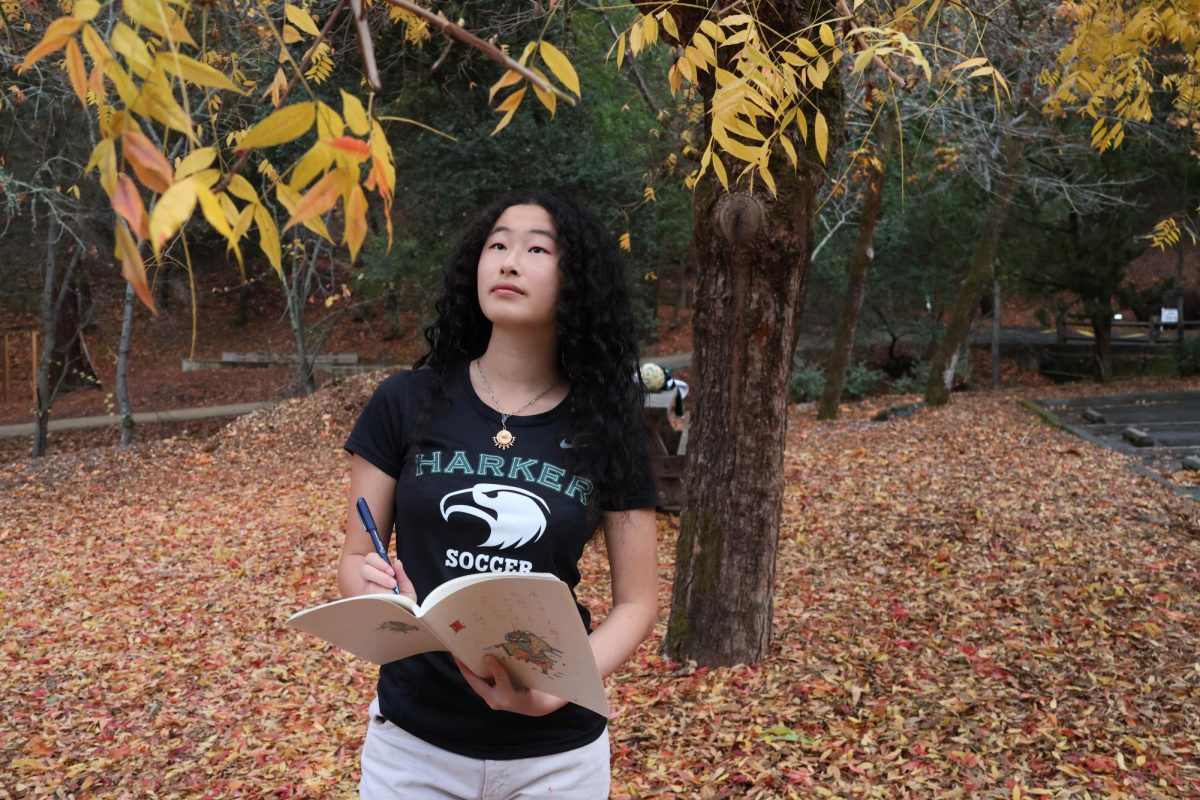
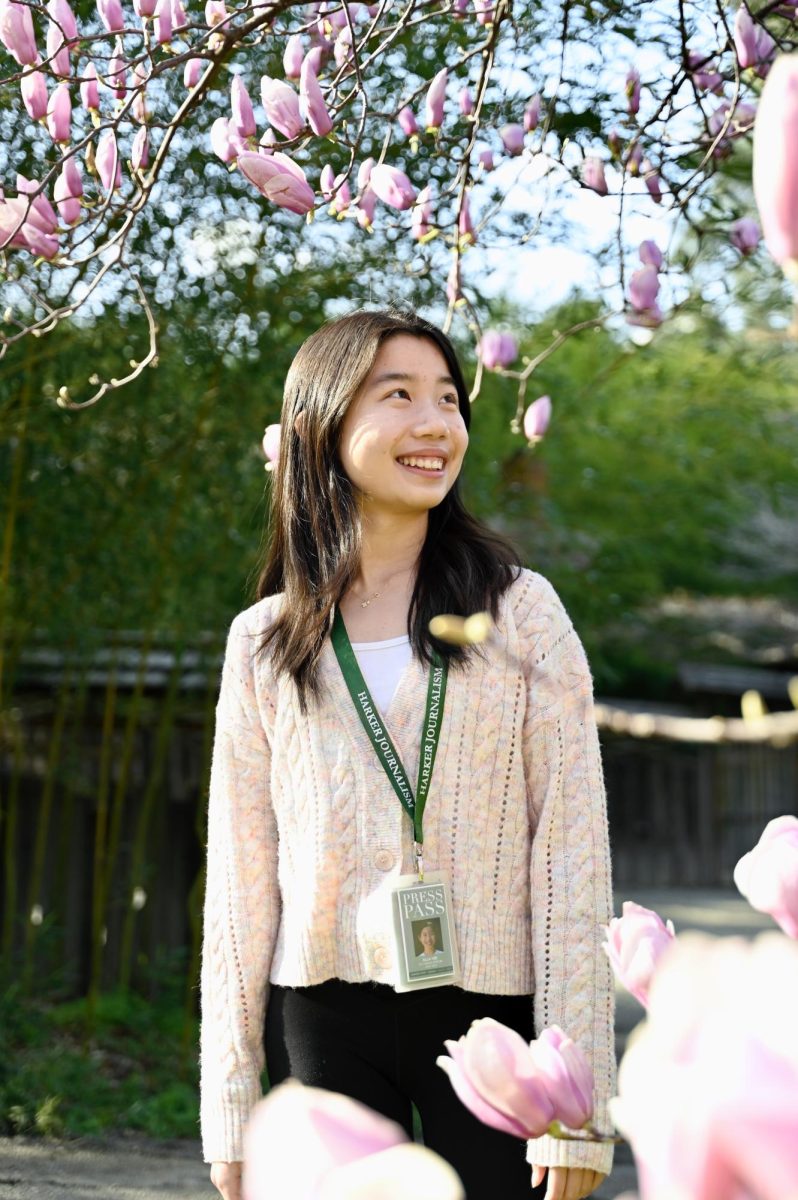
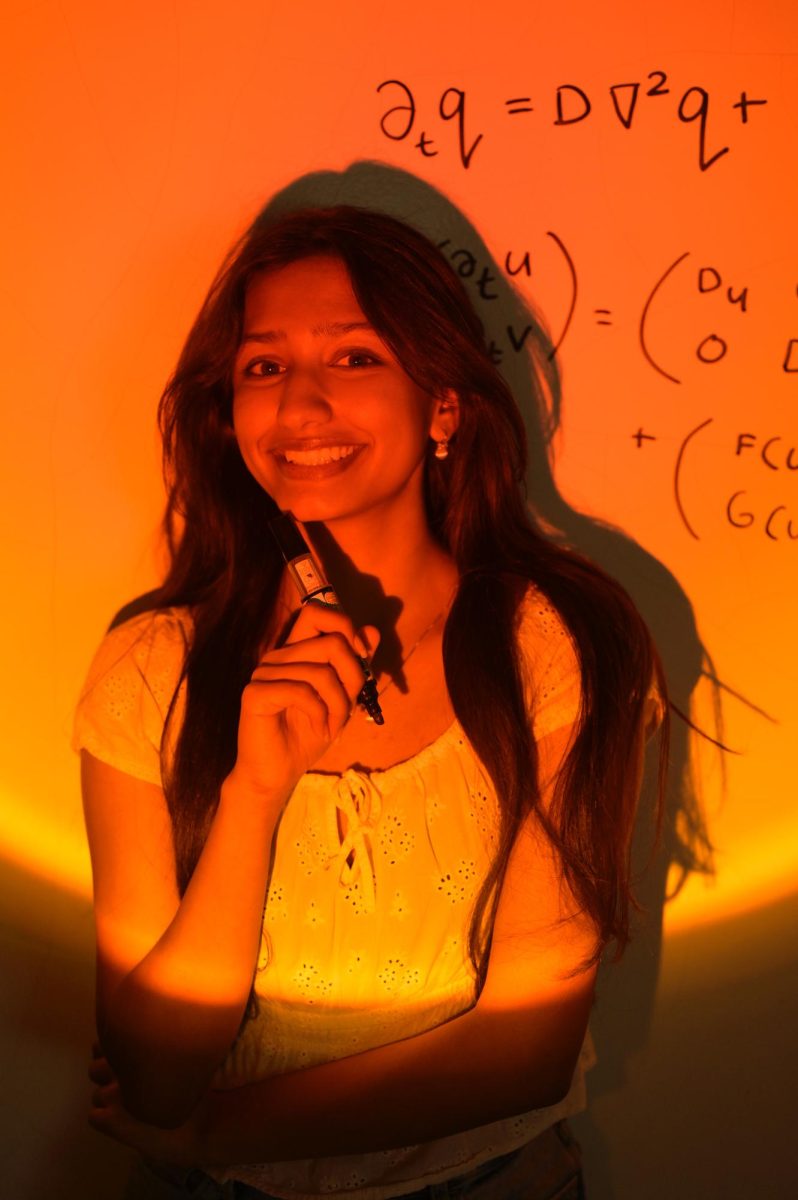








![“[Building nerf blasters] became this outlet of creativity for me that hasnt been matched by anything else. The process [of] making a build complete to your desire is such a painstakingly difficult process, but Ive had to learn from [the skills needed from] soldering to proper painting. Theres so many different options for everything, if you think about it, it exists. The best part is [that] if it doesnt exist, you can build it yourself, Ishaan Parate said.](https://harkeraquila.com/wp-content/uploads/2022/08/DSC_8149-900x604.jpg)


![“Animation just clicked in a way. I had been interested in art, but that felt different. [Animation] felt like it had something behind it, whereas previous things felt surface level. I wasnt making that crazy of things, but just the process of doing it was much more enjoyable, Carter Chadwick (22) said.](https://harkeraquila.com/wp-content/uploads/2022/08/Screen-Shot-2022-08-16-at-9.44.08-AM-900x598.png)


![“When I came into high school, I was ready to be a follower. But DECA was a game changer for me. It helped me overcome my fear of public speaking, and its played such a major role in who Ive become today. To be able to successfully lead a chapter of 150 students, an officer team and be one of the upperclassmen I once really admired is something Im [really] proud of,” Anvitha Tummala (21) said.](https://harkeraquila.com/wp-content/uploads/2021/07/Screen-Shot-2021-07-25-at-9.50.05-AM-900x594.png)



![“[Volleyball has] taught me how to fall correctly, and another thing it taught is that you don’t have to be the best at something to be good at it. If you just hit the ball in a smart way, then it still scores points and you’re good at it. You could be a background player and still make a much bigger impact on the team than you would think,” Anya Gert (’20) said.](https://harkeraquila.com/wp-content/uploads/2020/06/AnnaGert_JinTuan_HoHPhotoEdited-600x900.jpeg)

![“Im not nearly there yet, but [my confidence has] definitely been getting better since I was pretty shy and timid coming into Harker my freshman year. I know that theres a lot of people that are really confident in what they do, and I really admire them. Everyones so driven and that has really pushed me to kind of try to find my own place in high school and be more confident,” Alyssa Huang (’20) said.](https://harkeraquila.com/wp-content/uploads/2020/06/AlyssaHuang_EmilyChen_HoHPhoto-900x749.jpeg)













![“My slogan is ‘slow feet, don’t eat, and I’m hungry.’ You need to run fast to get where you are–you arent going to get those championships if you arent fast,” Angel Cervantes (12) said. “I want to do well in school on my tests and in track and win championships for my team. I live by that, [and] I can do that anywhere: in the classroom or on the field.”](https://harkeraquila.com/wp-content/uploads/2018/06/DSC5146-900x601.jpg)

![“I think getting up in the morning and having a sense of purpose [is exciting]. I think without a certain amount of drive, life is kind of obsolete and mundane, and I think having that every single day is what makes each day unique and kind of makes life exciting,” Neymika Jain (12) said.](https://harkeraquila.com/wp-content/uploads/2017/06/Screen-Shot-2017-06-03-at-4.54.16-PM.png)





